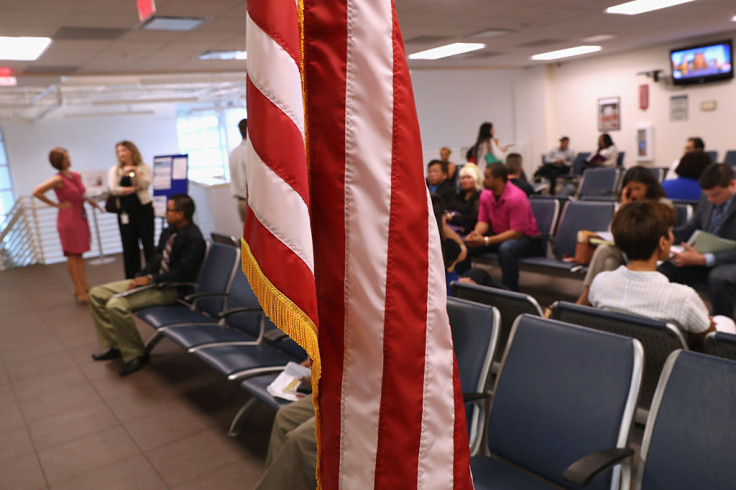
Immigrants seeking to live and work in the United States will now face new screening for "anti-American" behavior as part of an expanded vetting system, U.S. Citizenship and Immigration Services (USCIS) announced.
The agency said that officers will have discretion to deny benefits such as green cards if applicants have "endorsed, promoted, supported, or otherwise espoused the views of an anti-American or terrorist organization or group," including those that "support or promote antisemitic terrorism." The guidance, which has already gone into effect, applies to both pending and new applications.
"America's benefits should not be given to those who despise the country and promote anti-American ideologies," USCIS spokesman Matthew Tragesser said in a statement. "Immigration benefits — including to live and work in the United States — remain a privilege, not a right."
USCIS did not provide specifics about how the new guidance would be applied, but said espousing such views would be considered "an overwhelmingly negative factor" in an applicant's request. The agency also said, separately, that it would expand the types of benefits requests subject to social media vetting.
Aaron Reichlin-Melnick, a lawyer and senior fellow at the American Immigration Council, described the move as "McCarthyism." The term "anti-American ideologies or activities" mentioned in the alert has no precedent in immigration law, he said in a post on X, "and its definition is entirely up to the Trump admin."
NEW: McCarthyism returns to immigration law, as @USCIS announces that it will begin screening applicants for immigration benefits for "Anti-America ideologies or activities." The term has no prior precedent in immigration law and its definition is entirely up to the Trump admin. pic.twitter.com/4uUzlOtmIe
— Aaron Reichlin-Melnick (@ReichlinMelnick) August 19, 2025
The new directive builds on earlier steps by the Trump administration to tighten oversight of immigration benefits. On Monday, news surfaced that USCIS instructed officers to apply a broader standard when assessing applicants' "good moral character," a requirement for naturalization. The guidance called for a "holistic assessment" of behavior, extending beyond criminal history to include tax compliance, traffic infractions, and other conduct that may be "inconsistent with civic responsibility.".
The administration has also moved to reinstate a stricter version of the citizenship test, first introduced during Trump's initial term. Under the proposed rules, applicants would need to correctly answer 12 out of 20 civics questions, compared with the current six out of 10, while the question pool would expand from 100 to 128. Critics say the change would make the process harder for those with limited English or formal education.
© 2025 Latin Times. All rights reserved. Do not reproduce without permission.





